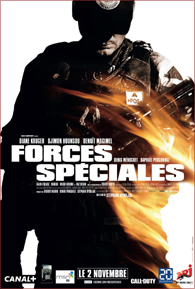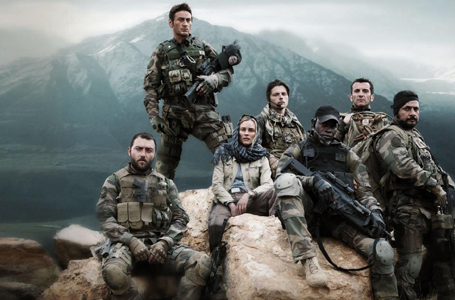
Of course this is a war propaganda film centred on the myth that one innocent civilian caught by rogue elements is sufficient to justify unilateral military intervention in a failed state. It's quite a pile-on of hysterical elements and a rock soundtrack that enables any war propaganda film but the beauty of Special Forces is how it doesn't come across as a war propaganda film at times.
The genius of Stephane Rybojad is he seems to take his film lessons from Roland Barthes. In Writing Degree Zero, the philosopher identified a style of discourse that is so transparent, one forgets it is a piece of rhetoric, to appear so complete in itself that one forgets it exists within a discursive space, that it even exists to impress upon the reader.
In Special Forces, Stephane Rybojad jettisons much of the narrative style and genre trappings of war films to create a war propaganda film that doesn't explicitly appear to be one. Here, there is a deficit of the intricate backstories of the special forces team, their camaraderie and team dynamics, long Stockholm syndrome-inducing exchanges between the captive and her tormentors, and even moustache twirling fanatic villains. The special forces team aren't concerned about why they're doing their mission – theirs is to not to reason why but simply to do and die.
As a genre-savvy war propaganda film, the best moments in the well-produced Special Forces are when its minimalist plot and direction make you feel as if you're in a war zone without realising for a moment that this is a war propaganda film at all.












 列印版本
列印版本












讀者回應
搶先發表第一個回應吧!
請先登入再使用此功能。